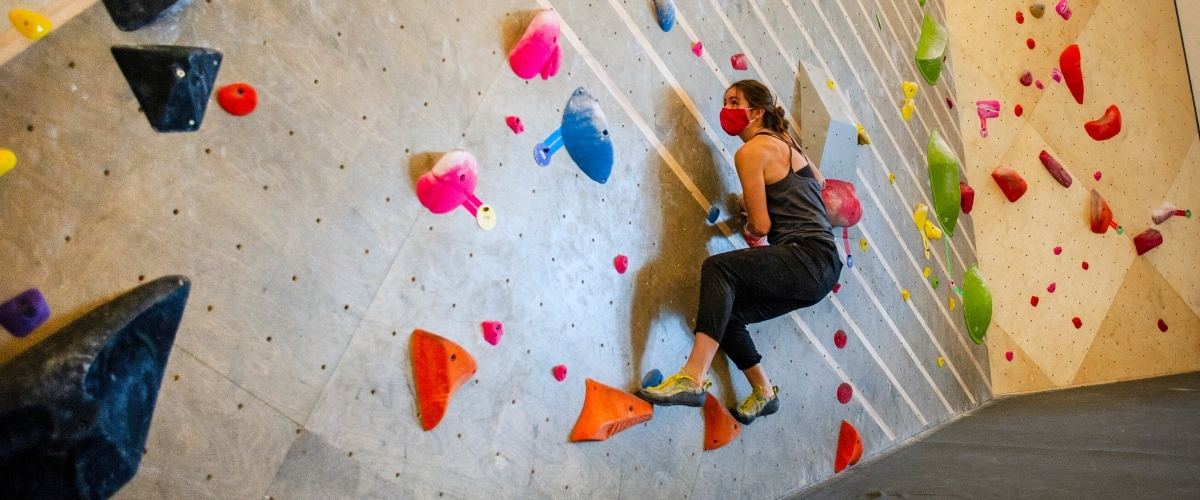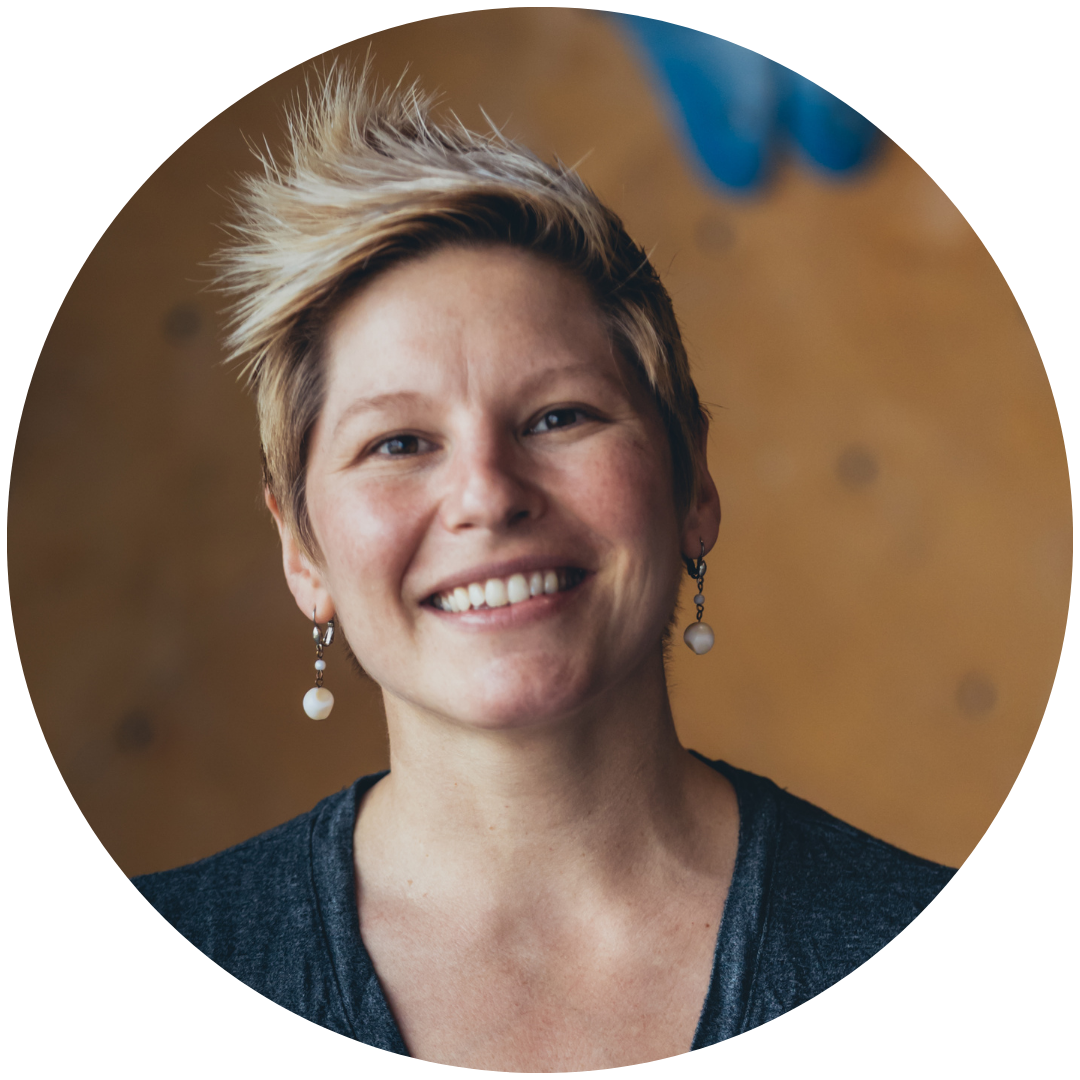Seven Habits of Highly Effective Climbers
 Photo taken at The Front Climbing Club
Photo taken at The Front Climbing Club
Many of us underestimate the impact we have on each other. As coaches and instructors, it's important to consider our role as leaders in our climbing communities. We get to influence the next generation’s perspective in climbing and in life – but how can we make the most of that opportunity?
Someone who would be surprised at the impact she had on me as an energetic 12-year-old was Mrs. Waldrup. My 8th-grade leadership class read ‘Seven Habits of Highly Effective Teens’, by Sean Levy. Being introduced and encouraged to practice the Seven Habits had a fundamental effect on my outlook for the rest of my life.
We have the privilege of working with malleable minds, so let’s explore the Seven Habits through the lens of coaching. How can we challenge our youth to become more efficient climbers and effective people?
Habit 1: Be Proactive®
This is about the attitude we choose. Challenge your climbers to begin thinking about what they CAN control in a given problem that challenges their weakness. Talk through what the climber can and cannot control. Urge your climbers to continue this habit in everyday life by confronting a problem, identifying what they can control, and choosing the attitude they have toward it. Touch base about their experiences the next week at practice.
Habit 2: Begin With the End in Mind®
What are you developing in your climbers and why? Be intentional with your time and theirs. How would your climbers like to improve and what does success look like? Discuss WHY the challenges you are presenting will bring your climbers closer to their goals. Try a practice where climbers must read their problems backward, then forwards. Working from the end back to the start will demonstrate more complex movements through a crux. Debrief and ask them to think about something they would like to achieve in life. Discuss what success looks like and the steps that lead toward it.
Habit 3: Put First Things First®
Learning to prioritize attention strengthens focus and efficiency. Ask your climbers to identify the difference between urgent or important tasks in their training. For example, it is important to train grip strength, but not urgent. It is both urgent and important to do safety checks with your belayer before climbing. When your climbers can decide what is important and can differentiate what is urgent, the ability to choose where to put focus will benefit climbers long after their sessions at the gym.
Habit 4: Think Win-Win®
Mutually beneficial outcomes trump any compromise. How can our skills and challenges benefit each other? For example, if you need more belayers and have parents that would like to be more engaged, teaching them to belay and asking them to be a part of practice could be a win-win! Pair up your climbers and assign a task. Encourage collaboration before coming up with potential solutions. Asking, "What's most important to you?" may be the magic words in finding a solution together!
Habit 5: Seek First to Understand, Then to Be Understood®
The habit of seeking to understand requires curiosity. Ask questions to make sure the assumption of understanding is not taking the place of actual understanding.
Engage your climbers and talk through their project. Have their partner ask clarifying questions before and after each attempt. Suggest to your climbers they try out this habit the next time they have a confrontation. If we all take a moment to seek to understand first, mutual respect builds in our climbing community.
Habit 6: Synergize®
How can we work together to accomplish our goals? As you learn your team's strengths and weaknesses, try pairing up your experienced climbers with the less experienced and encourage mentorship opportunities. Teaching builds confidence and develops climbers into leaders. Your climbing community will benefit by priming your youth league climbers to become future coaches. Ask your climbers what kinds of routes, movements, and holds could help them become stronger, then facilitate communication with the setting team. Helping climbers learn to ask questions builds comfort when climbers have future issues and need those skills to accomplish a goal.
Habit 7: Sharpen the Saw®
Youth programs are our opportunity to guide young minds in being effective in the gym and in our climbing communities. Make time to show your climbers what they can become! Videos of other young climbers at national competitions, Olympic athletes in climbing, Reel Rock highlights, or even sharing inspirational climber's posts on Instagram and TikTok are all ways to inspire.
As we guide young climbers and know the impact we have on each other, we intentionally build the next generation into a more proactive, creative, understanding, and effective culture. I believe that is a community we all want to be a part of.
Check out these titles to sharpen YOUR saw!
- How to Solve a Problem by Ashima Shiraishi - Great for kids and fabulous illustrations.
- Nutrition for Climbers by Marisa Michael - Encourage a healthy mindset toward food in our young climbers.
- Espresso Lessons by Arno Ilgner - Take your mental strength training to the next level and how to focus when fear distracts us from success!
- Rock Climber's Training Manual by Mike & Mark Anderson - A super-deep dive into all things training, a great read for building programming.
About the Author
 Hailey Caissie is the Programs Manager at The Crag Climbing Gym in Nashville, Tennessee. Hailey has been a climbing instructor since 2006 and loves seeing new climbers discover their abilities. She finds it especially fulfilling to coach young athletes toward discovering their potential. She works to inspire generations of climbers to become more intentional, influential, and inclusive.
Hailey Caissie is the Programs Manager at The Crag Climbing Gym in Nashville, Tennessee. Hailey has been a climbing instructor since 2006 and loves seeing new climbers discover their abilities. She finds it especially fulfilling to coach young athletes toward discovering their potential. She works to inspire generations of climbers to become more intentional, influential, and inclusive.
